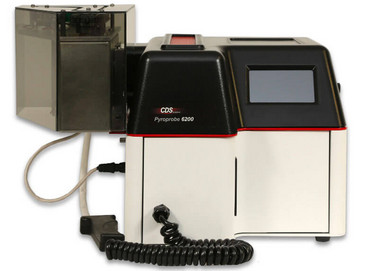TD-Phthalate Analysis using a Reference Polymer and an IEC Standard Method
This application note presents RSDs of phthalates with a reference polymer ma¬terial for IEC 62321-8 method using a CDS 6000 Series Pyroprobe Autosampler.

contributed by CDS Analytical |

RoHS, or Restriction of Hazardous Substances restricts the use of specific haz-ardous materials found in electrical and electronic products. This includes the following 4 phthalates: Bis(2-Ethylhexyl) phthalate (DEHP), Benzyl butyl phthalate (BBP), di-n-butyl phthalate (DBP), Diisobutyl phthalate (DIBP). Additionally, the International Electrotechnical Commission (IEC) published a standard method for determining phthalates in electronic equipment. IEC 62321-8 defines approaches to determine previously mentioned DEHP, DIBP, BBP, DBP, as well as di-n-octyl phthalate (DNOP), di-isononyl phthalate (DINP) and di-iso-decyl phthalate (DIDP) in electronics using TD-GC-MS as a quick screening technique before applying unnecessary solvent extractions for GC-MS analysis. CDS Analytical provides a reference polymer material, CDS P/N 6203-5094, containing the previously mentioned phthalates as well as di-n-hexyl phthalate (DNHP) to facilitate the TD screening technique. Concentrations of the phthalates in the reference material are found in Table 1. This application note investigates IEC method 62321-8 using this reference polymer material.
Log in or register to read this article in full and gain access to The Analytical Scientist’s entire content archive. It’s FREE!

















